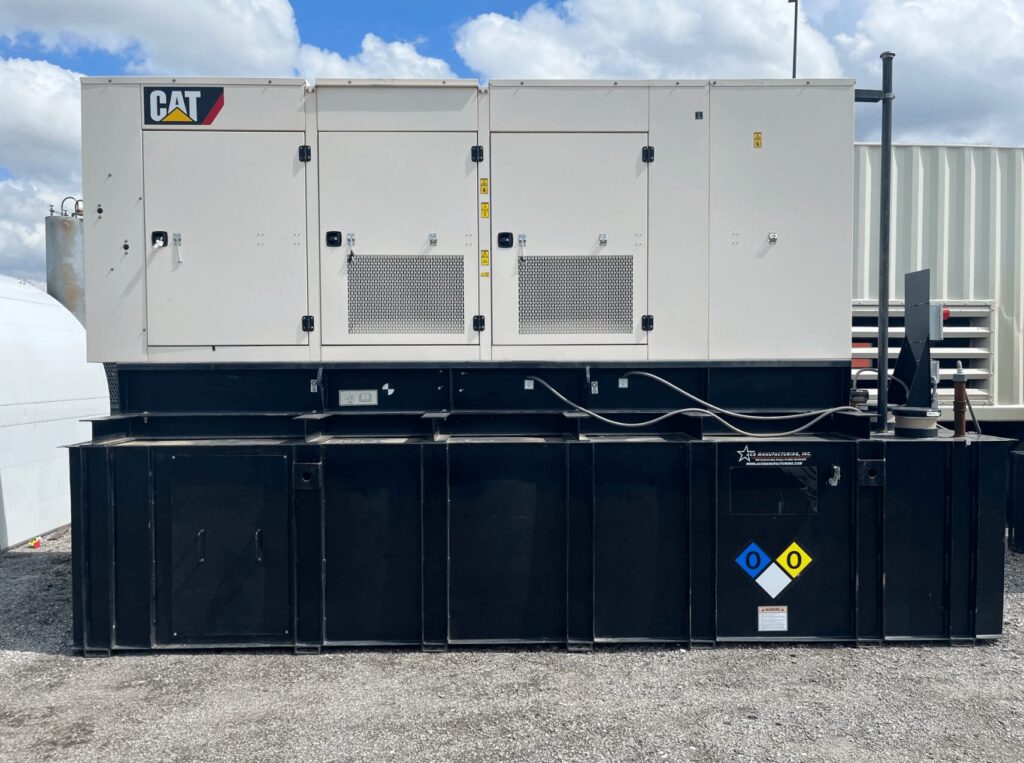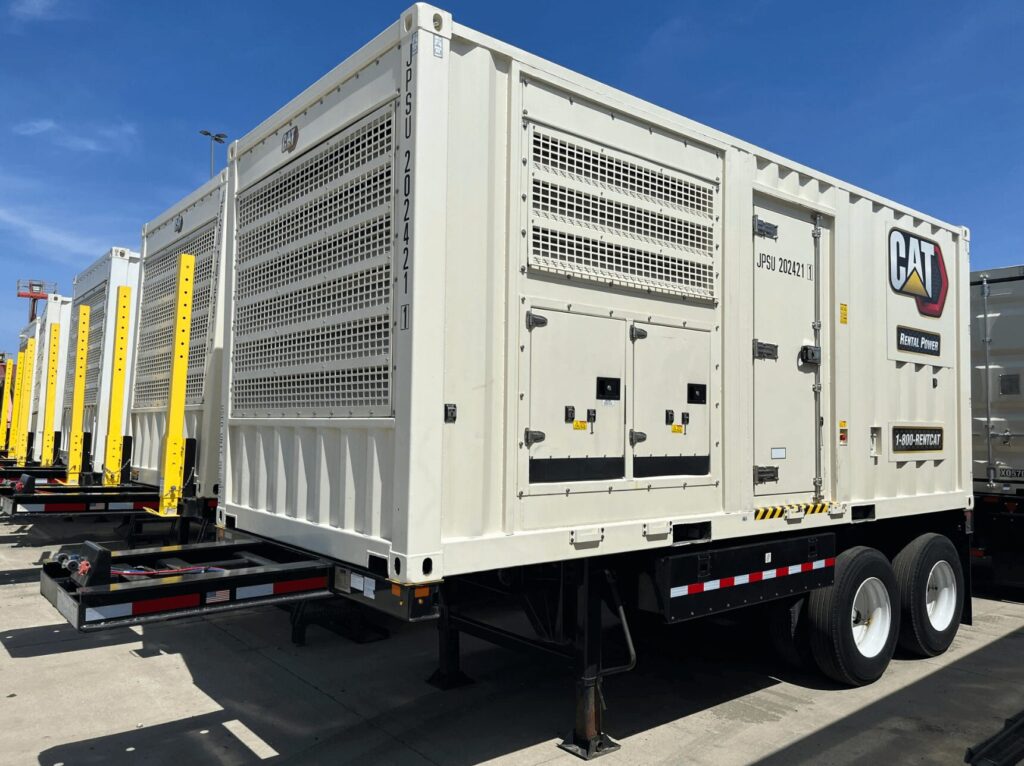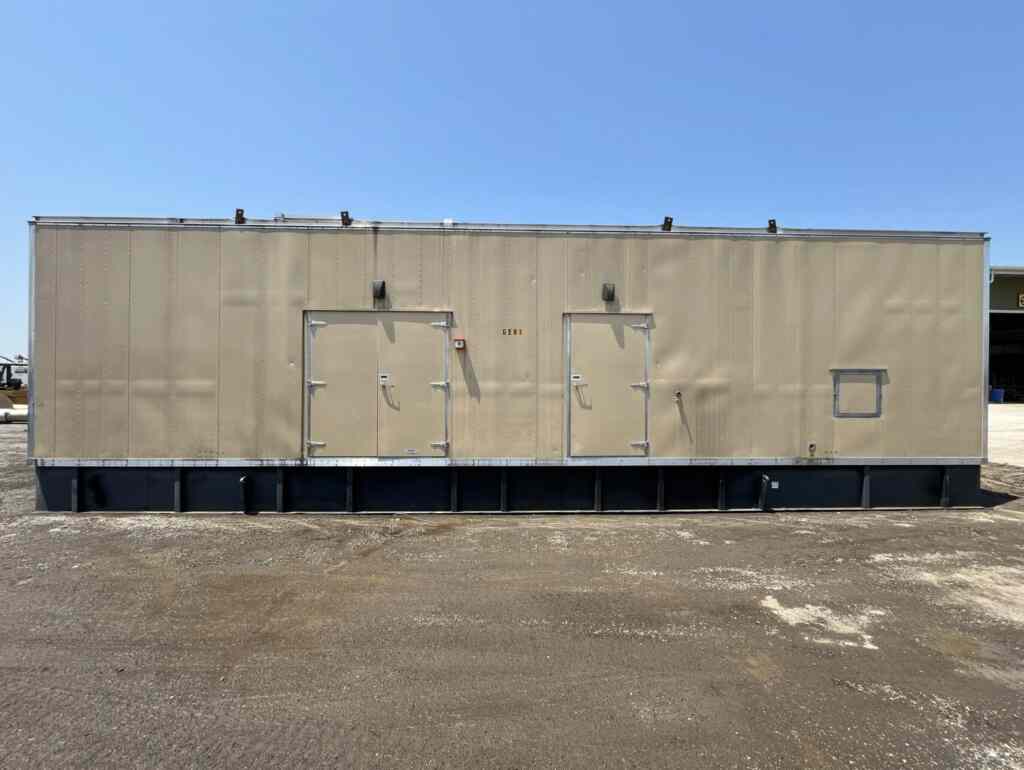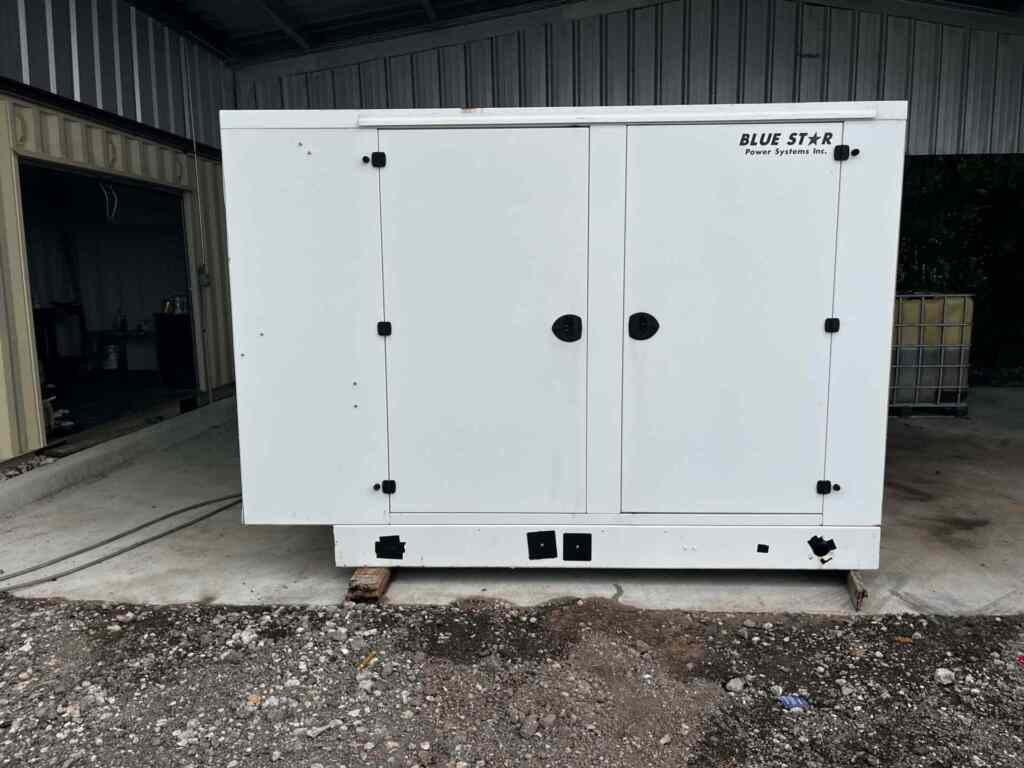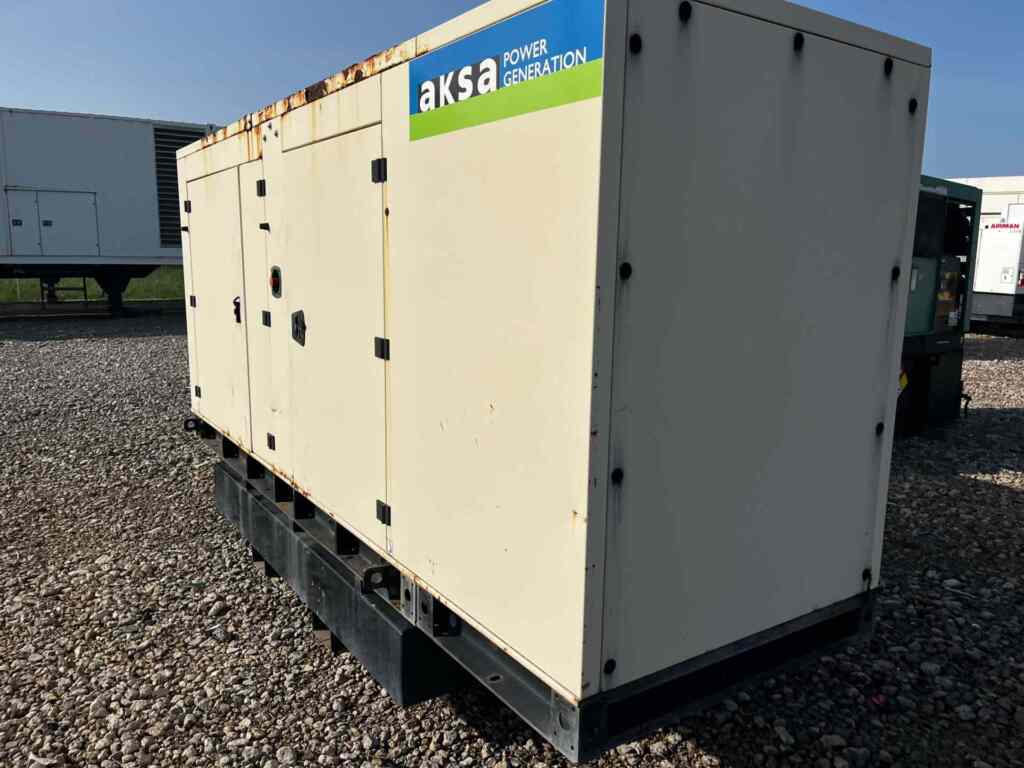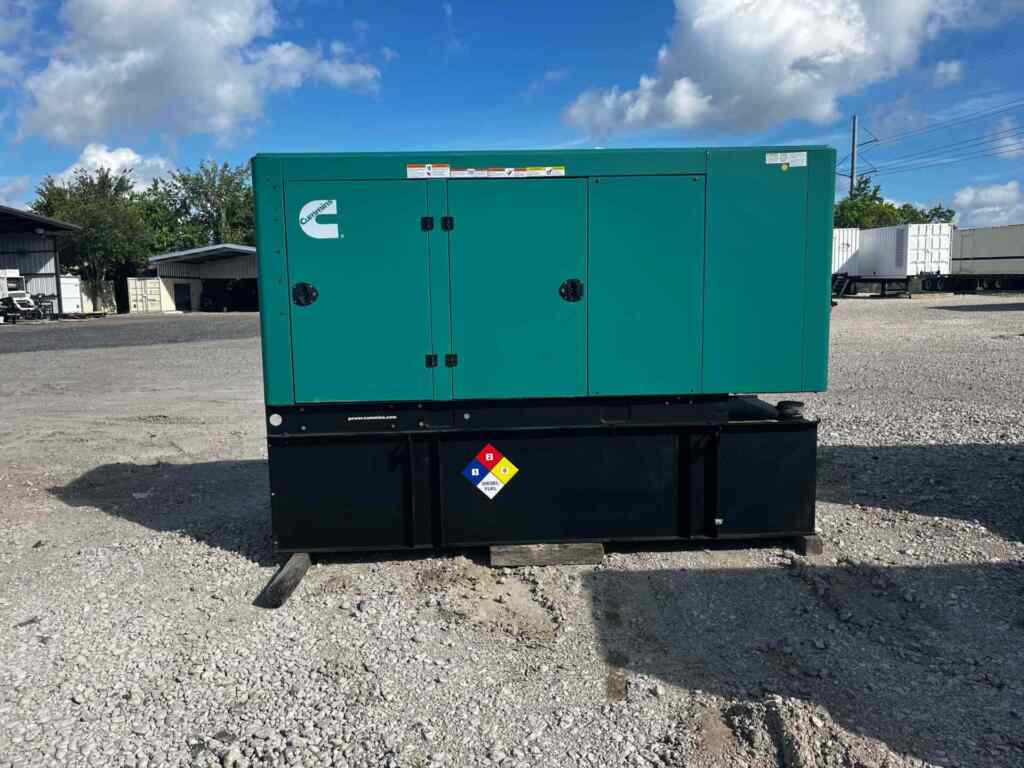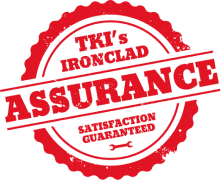Safeguarding Data Continuity: The Vital Role of Data Center Generators
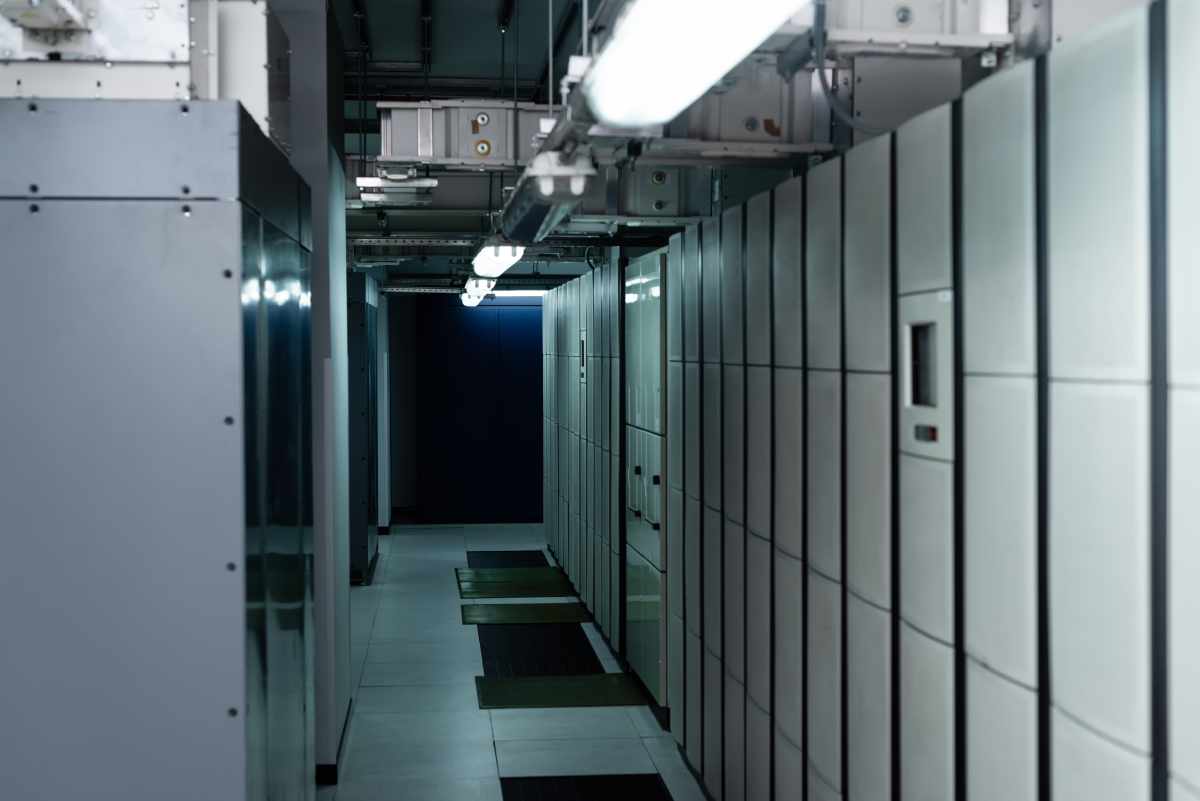 In the digital age, where data drives business operations, data center generators have become a cornerstone of reliability, ensuring uninterrupted data continuity. These robust power systems act as the backbone of data centers, providing backup electricity during power outages or grid failures, safeguarding critical data and preserving business operations. Turnkey Industries’ pre-owned generators undergo rigorous inspections and maintenance, ensuring they meet the high standards required for supporting the critical power demands of data center operations.
In the digital age, where data drives business operations, data center generators have become a cornerstone of reliability, ensuring uninterrupted data continuity. These robust power systems act as the backbone of data centers, providing backup electricity during power outages or grid failures, safeguarding critical data and preserving business operations. Turnkey Industries’ pre-owned generators undergo rigorous inspections and maintenance, ensuring they meet the high standards required for supporting the critical power demands of data center operations.
Types of Generators for Data Centers
There are several types of generators that are commonly used in data centers to provide backup power during outages. The most common type is the diesel generator, which uses diesel fuel to generate electricity. Diesel generators are highly reliable, efficient, and can provide power for long periods of time. Another type is the natural gas generator, which uses natural gas as a fuel source. Natural gas generators are known for their lower emissions and cost-effectiveness. Propane generators are also used in data centers, offering a cleaner burning fuel option. Finally, there are hybrid generators that combine multiple fuel sources, such as diesel and natural gas, to provide greater flexibility and efficiency. When choosing a generator for a data center, it is important to consider factors such as power capacity, fuel efficiency, emissions, and maintenance requirements.
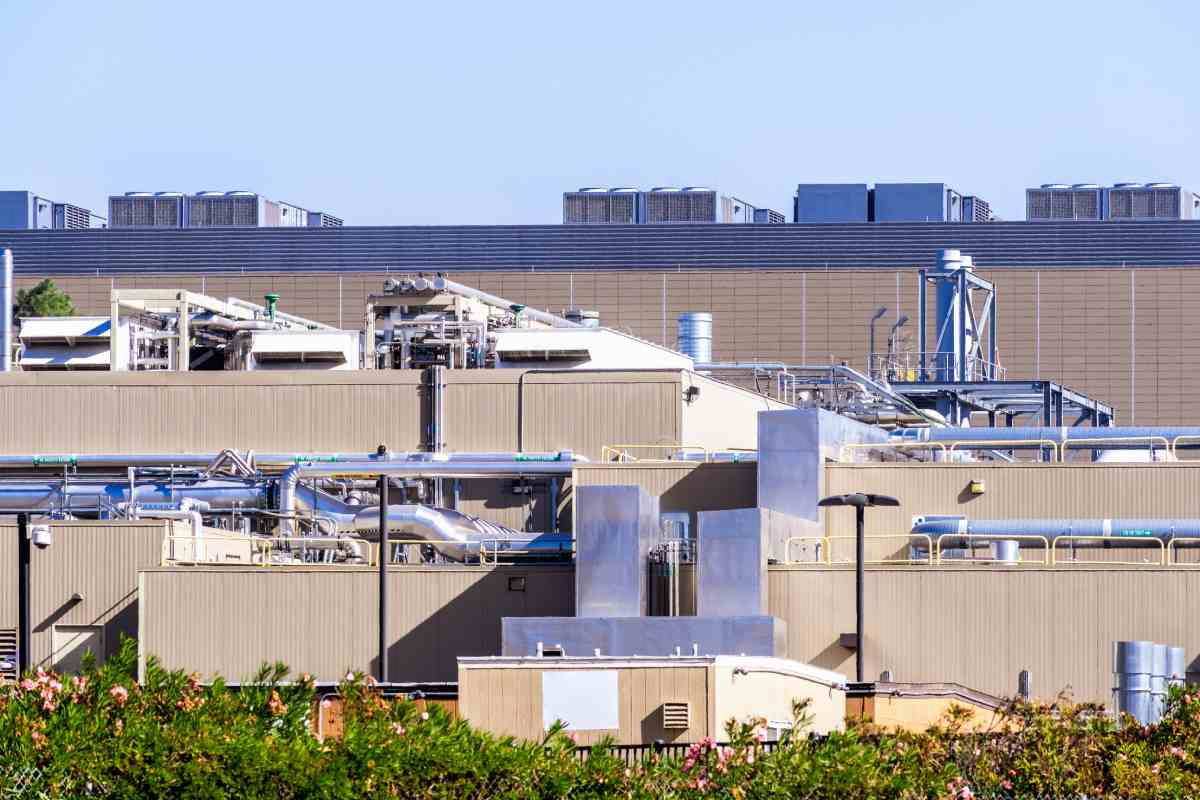 In addition to the various types of generators commonly used in data centers, there are also considerations regarding their installation and maintenance. When installing a generator in a data center, it is crucial to ensure that it is properly sized to meet the power demands of the facility. A generator in a data center that is too small may not be able to handle the load during an outage, while one that is too large may result in unnecessary costs. Regular maintenance is also essential to ensure the generator’s optimal performance and reliability. This includes routine inspections, fuel testing, and load testing to identify any issues or potential problems before they escalate. By taking these factors into account, data center operators can select the most suitable generator and implement effective maintenance practices to ensure uninterrupted power supply during critical situations.
In addition to the various types of generators commonly used in data centers, there are also considerations regarding their installation and maintenance. When installing a generator in a data center, it is crucial to ensure that it is properly sized to meet the power demands of the facility. A generator in a data center that is too small may not be able to handle the load during an outage, while one that is too large may result in unnecessary costs. Regular maintenance is also essential to ensure the generator’s optimal performance and reliability. This includes routine inspections, fuel testing, and load testing to identify any issues or potential problems before they escalate. By taking these factors into account, data center operators can select the most suitable generator and implement effective maintenance practices to ensure uninterrupted power supply during critical situations.
Powering Uninterrupted Data Operations
Data centers are the nerve centers of modern businesses, handling massive amounts of valuable information and transactions. Any disruption in power supply can lead to data loss, downtime, and severe financial implications. Generators for data centers offer an immediate and reliable source of backup power, maintaining essential cooling systems, servers, networking equipment, and storage devices. This seamless transition to backup power ensures uninterrupted data operations, safeguarding against potential financial losses and preserving business reputation.
Customized Solutions for Critical Data Centers: Turnkey Industries Offers High-Quality Data Center Generators
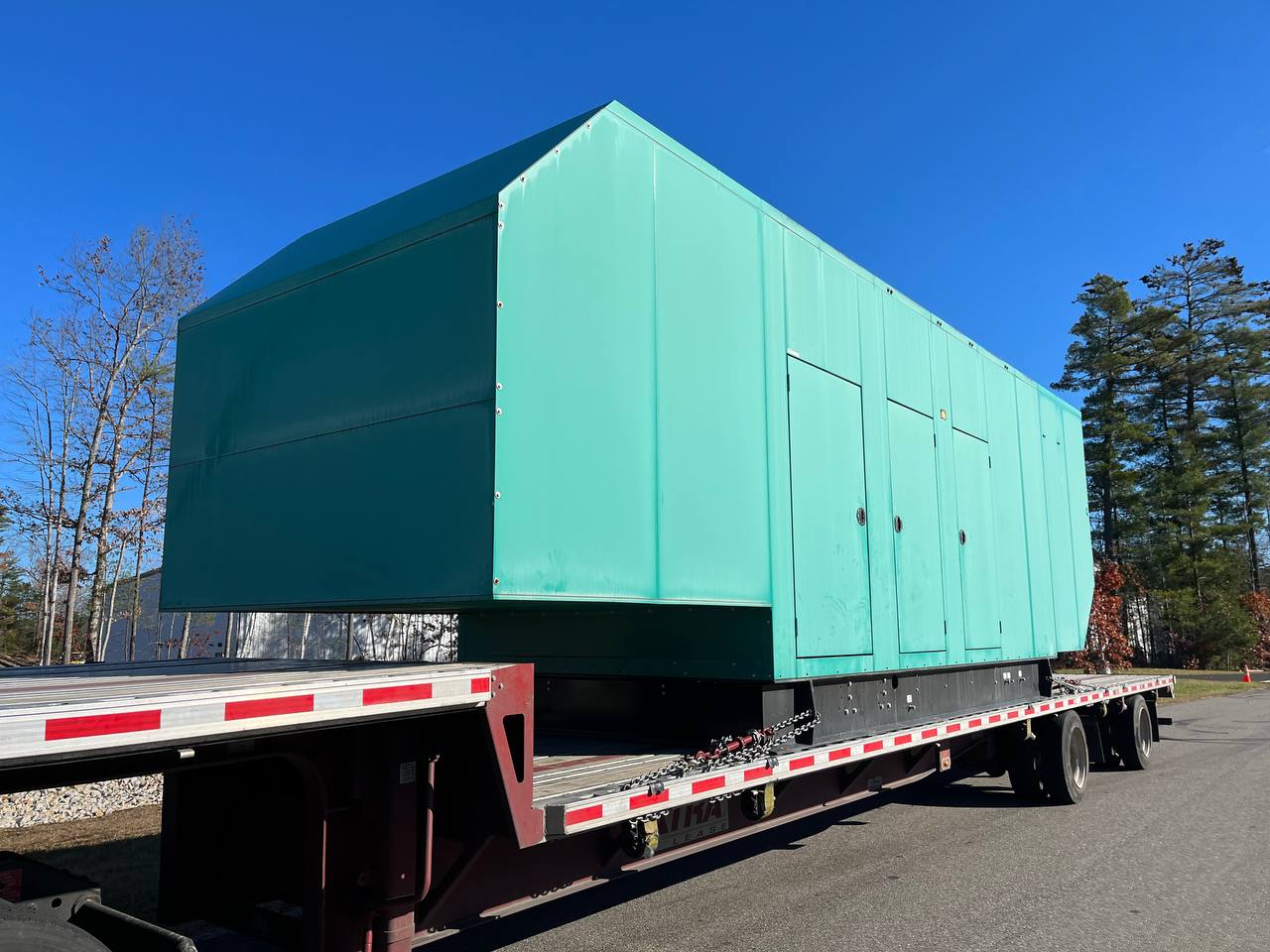 At the forefront of empowering data centers with resilient power solutions is Turnkey Industries, offering a wide range of high-quality generators tailored to meet the specific needs of critical data environments. With a deep understanding of the data center industry, Turnkey Industries delivers customized generator solutions that match the energy requirements, scalability, and efficiency demanded by modern data centers.
At the forefront of empowering data centers with resilient power solutions is Turnkey Industries, offering a wide range of high-quality generators tailored to meet the specific needs of critical data environments. With a deep understanding of the data center industry, Turnkey Industries delivers customized generator solutions that match the energy requirements, scalability, and efficiency demanded by modern data centers.
Turnkey Industries’ generators for data centers are engineered to deliver optimal performance and rapid response to power disruptions. These generators come equipped with advanced features, such as automatic startup and remote monitoring, allowing data center operators to have full control and visibility over their backup power systems.
Do Data Center Power Generators Require Special Permits?
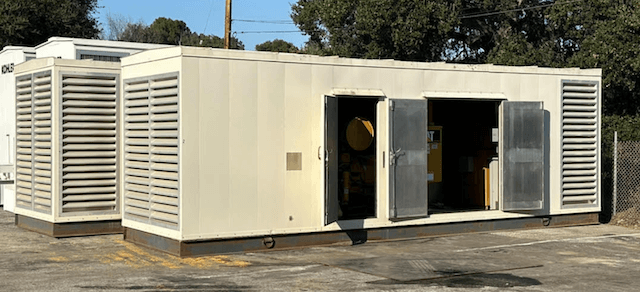 Data center power generators do not typically require special permits. However, it is important to adhere to local regulations and obtain the necessary permits for construction and operation. In many regions, generators above a certain size may require permits related to noise emissions, air quality, and zoning restrictions. Additionally, environmental permits and certifications may be necessary to ensure compliance with sustainability standards. It is crucial for data center operators to consult with local authorities and experts to understand and fulfill all legal requirements when installing and operating power generators.
Data center power generators do not typically require special permits. However, it is important to adhere to local regulations and obtain the necessary permits for construction and operation. In many regions, generators above a certain size may require permits related to noise emissions, air quality, and zoning restrictions. Additionally, environmental permits and certifications may be necessary to ensure compliance with sustainability standards. It is crucial for data center operators to consult with local authorities and experts to understand and fulfill all legal requirements when installing and operating power generators.
Data center power generators generally don’t require special permits specifically for their function, but several other regulatory aspects must be considered. In many jurisdictions, data centers operating 75 kW or 80 kW generators—or even larger—may need to secure permits for construction, noise control, air quality compliance, and adherence to zoning laws. This is especially true for densely populated or environmentally sensitive areas, where regulations may be stricter.
For example, air quality permits might be necessary to ensure generator emissions are within acceptable limits, and noise permits may be required if the generator’s operation could exceed local noise ordinances. Data center operators should also consider environmental certifications that align with sustainability goals, ensuring that backup power systems don’t negatively impact the community or the environment.
Consulting with local authorities, industry experts, and legal advisors is crucial to navigate these requirements successfully. This way, data center operators can ensure their power generators, whether 75 kW, 80 kW, or more, are installed and operated in full compliance with all applicable regulations, reducing the risk of legal issues and maintaining the trust of the surrounding community.
What Does A Generator Do For A Data Center?
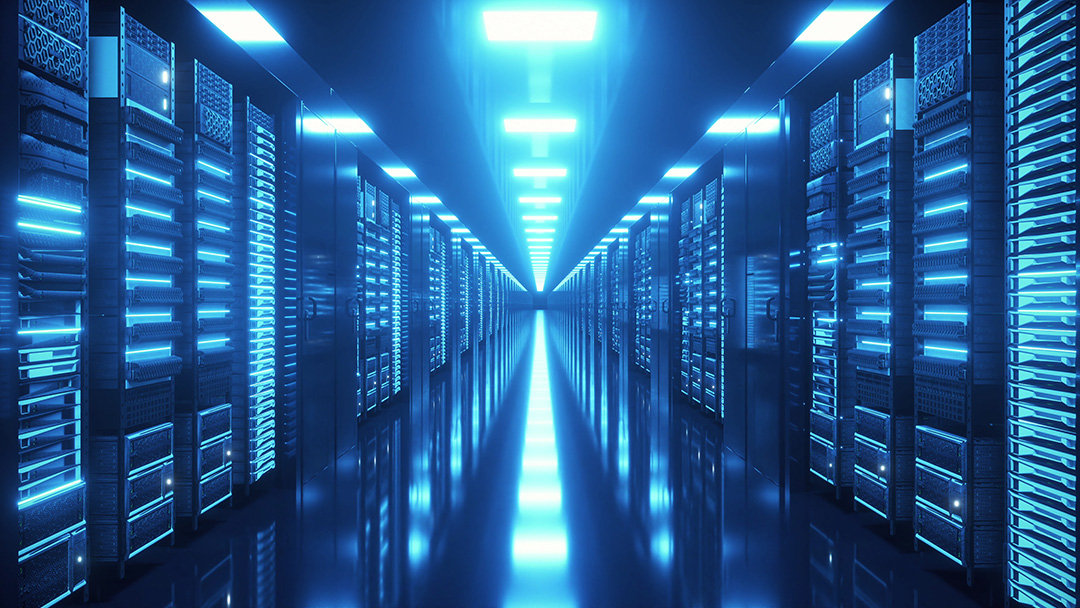 Turnkey Industries offers reliable used generators specifically suited for data centers, ensuring consistent power supply and efficiency to meet the high demands of critical operations.
Turnkey Industries offers reliable used generators specifically suited for data centers, ensuring consistent power supply and efficiency to meet the high demands of critical operations.A generator plays a crucial role in a data center by providing backup power in the event of a utility power failure. It is designed to supply uninterrupted electricity to the data center’s critical systems, ensuring continuous operations and preventing data loss. When the utility power goes out, the generator automatically starts and takes over the power supply, allowing the data center to continue functioning without any interruption. Generators in data centers are typically powered by diesel or natural gas engines, and they are equipped with advanced control systems to monitor power quality and transfer smoothly between utility and generator power sources. Overall, a generator is a vital component of a data center’s infrastructure, ensuring reliability and uptime during power outages.
Furthermore, generators in data centers are often equipped with multiple redundant systems to ensure maximum reliability. They are typically connected to multiple fuel sources, such as onsite fuel storage tanks and utility gas lines, to provide an uninterrupted power supply during extended outages. Additionally, advanced monitoring systems constantly track the generator’s performance, fuel levels, and overall health to ensure optimal efficiency and prompt maintenance when required. These measures are in place to guarantee that the generator can seamlessly take over the power supply and sustain the data center’s critical operations, no matter the circumstances. With such robust backup power solutions in place, data centers can operate with confidence, knowing that their systems are protected and that any power disruptions will be swiftly mitigated.
How The Weather Effects The Need For Backup Power At A Data Center
Do Data Center Power Generators Have Issues With Noise?
Data center power generators are crucial for providing backup power during outages and ensuring continuous operations. However, these generators can generate substantial noise levels, which can be a concern for nearby residents or businesses. To mitigate this issue, data center operators implement various noise reduction measures such as soundproof enclosures, exhaust silencers, and strategic placement. Additionally, advancements in generator technology have led to quieter operation without compromising performance. Regular maintenance and monitoring also help identify and address any noise-related issues promptly. While noise can be a potential problem for data center power generators, proactive steps are taken to minimize its impact and ensure a quieter environment for all stakeholders.
What alternatives to backup data center generators to data centers have for backup power?
Data centers rely heavily on backup power to ensure uninterrupted operations in the event of a power outage. While backup generators are commonly used as a reliable source of backup power, data centers have started exploring alternatives to diversify their backup power options. One alternative is the use of uninterruptible power supply (UPS) systems, which provide immediate power during short outages and bridge the gap until the backup generators kick in. Another option is the integration of renewable energy sources like solar panels or wind turbines, reducing dependency on traditional fossil fuel generators. Additionally, some data centers are exploring the use of fuel cells, which offer longer runtime and higher energy efficiency compared to generator sets. By utilizing a combination of these alternatives, data centers can enhance their backup power capabilities and ensure continuous uptime for critical operations.
How can data center generators help during bad weather or acts of vandalism?
Data center backup generators play a crucial role in ensuring uninterrupted power supply during bad weather or acts of vandalism. When severe weather conditions, such as storms or hurricanes, disrupt the primary power source, these backup generators kick in to provide electricity for the data center operation. Similarly, in the unfortunate event of vandalism that damages the main power infrastructure, the generators act as a reliable alternative power source. Equipped with fuel tanks and automatic transfer switches, these generators can run for extended periods, ensuring continuous and uninterrupted power supply to critical data center equipment. By providing a robust backup power solution, generators for data centers help mitigate the impact of adverse weather events or deliberate acts of sabotage on data center operations.
Looking to buy or sell a used generator reliable enough to power a data center?
We have one of the largest selections of used generators in America. Based out of Texas, our shipping times are logistically quick, and will ship with immediate use upon arrival. We also buy used generators — inquire about selling your generator here.
What Size Of Generator Is Best For Data Centers?
Selecting the appropriate generator size is paramount for ensuring uninterrupted power supply to data centers, which serve as critical hubs for digital operations. Larger data centers with extensive server racks, cooling systems, and high-density computing equipment may require the robust power output of 350 kW generators to maintain continuous operations during power outages. These generators offer ample capacity to support the high energy demands of modern data centers, ensuring data integrity and minimizing the risk of costly downtime. Conversely, smaller data centers or those with more modest power requirements may find that 150 kW generators provide sufficient backup power while offering greater flexibility and efficiency. These generators offer a cost-effective solution for maintaining essential services during emergencies or maintenance activities. Ultimately, the choice between 350 kW and 150 kW generators depends on the size, complexity, and energy demands of the data center, with considerations such as scalability, redundancy, and budget constraints guiding the decision-making process. In data center operations, selecting the appropriate generator size—be it 350 kW or 150 kW—is mission critical, hinging on factors such as the facility’s scale, complexity, and energy requirements, alongside considerations of scalability, redundancy, and financial limitations.
What types of generators are available?
We pride ourselves in our inventory’s variety. Whether you are seeking a used generator, new generator, a trailer mounted generator, a standby generator, a generator that is powered by diesel, or a gas powered generator we are likely going to have something you need in our inventory. If you don’t see what you’re looking for, feel free to contact us or call 713-823-0890.






 Turnkey Industries offers a variety of high-capacity
Turnkey Industries offers a variety of high-capacity 